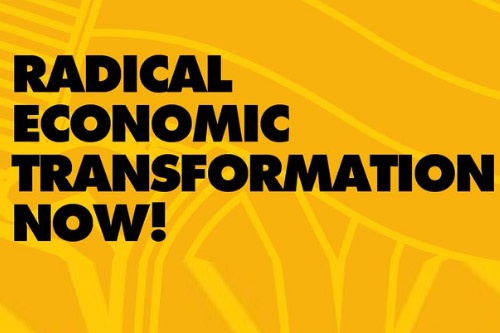On 5 May 2020, the Commissioner for SARS made a profound media statement, which gave a detailed account of projected revenue collection in light of the COVID-19 crisis, but also gave valuable insight of what we can expect from SARS in coming months.
The most important aspects of the address can be unpacked as follows:
- Pensive statement – the first thing many would notice is how comprehensive this statement is, and it is clear the Commissioner poured a lot of thought into it. Arguably it was not incumbent for him to go to such lengths, but it reveals the gravity of the message he wanted to convey and also the context to what taxpayers may experience from SARS in the coming months.
- SARS officials returning to work – following a period where SARS operated with staffing levels of between 15 and 30%, its employees will now start returning to work – to meet taxpayer demands and, most importantly, to deliver on its mandate to collect revenue.
- Grim economic outlook – with a struggling economy pre-COVID-19, the credit rating downgrade and the prevailing crisis it is anticipated that our economy will contract by between 5.4% and 16%. Frankly this is a staggering statistic, but a crisis of this magnitude has a devastating snowball effect where we end up with less participants in the economy on the one hand and more being reliant on government support on the other.
- Decreased revenue collection – April yielded a significant decline in revenue collection from the previous year, totalling a drop of R9 billion (-8.8%). The slide was experienced across all tax types – PAYE (-5.2%); domestic VAT (-4.3%); overall import tax (-19.7%); specific excise duties (-54%); and CIT (-55.4). SARS does not expect our fortunes to change any time soon and estimates that revenue collection could be R285 billion below the amount projected in the budget in February.
- Job losses and failing businesses – SARS looked at the tax directives finalised during April which reveals that over 20 000 employees were retrenched during April. According to figures sourced from STATS SA, prospects for businesses look equally dire – liquidations increased by 12.3%, 46.4% of businesses have temporarily closed their doors and 54% of businesses predict they could not survive beyond the three-month mark of the pandemic.
- An improved SARS – it seems we are dealing with a vastly improved SARS. The institution has shown its agility in operating effectively during these times, whilst observing the spirit of the lockdown. SARS also used this time smartly to improve the integrity and effectiveness of their systems. It is clear the Commissioner appreciates the challenge that lies ahead and he and those around him have developed a clear 3-step plan to enforce compliance and optimise revenue collection in the coming months.
- Third party information – the Commissioner made it clear SARS will rely more heavily on information sourced from banks, employers, financial services companies who administer retirement funds and insurance schemes to assess taxpayers. It will also use information available from the population register, the companies register and the Deeds Office to triangulate taxpayer information. This is an encouraging initiative, as these sources were vastly underutilised in the past. Items such as rental income not disclosed will be easily detected if SARS compares its records with that of the Deeds Office.
- Aggressive enforcement – the statement does not expressly warn taxpayers of this, but with the current permutations, SARS’ hands are tied; it has no choice but to extract every penny from the tax base. With the exigence to collect taxes and enhanced capacity, we are expecting more audits and a tougher SARS in the coming months. Those who historically had the nerve to try their luck with SARS should think carefully before they choose to run the gauntlet again this year.
- Individual wealth no. 1 on the list – all tax types are underperforming as a result of the pandemic, but some will be under more pressure than others. Businesses are collapsing, with more to follow, and those who manage to stay afloat may report losses for the foreseeable future, which means corporate income tax will fall sharply. The contraction in the economy and the restriction of many activities mean less transactions which impacts heavily an VAT. The same rationale applies to imports and exports where customs revenue will see a significant drop, not to mention the loss in excise duties from the prohibition on sales of alcohol and tabaco. This leaves us with personal income tax where we will see a decline but perhaps not as piercing. The over-taxed minority will potentially face an even heavier burden this season, as SARS will have to extract all it can from those with the means to contribute. SARS will no longer shut its eyes to trust structures, rental properties and offshore assets.
- Commissioner’s report card – Edward Kieswetter closed off by reflecting on his first year as Commissioner. Lest we forget, when he assumed his position, SARS faced a serious breakdown of governance and integrity, with structures and employee relationships left festering. From our perspective, the Commissioner is dedicated to serving a higher purpose and he has a clear vision on what he wishes to achieve, which is to restore SARS as a respected institution that serves compliant taxpayers as it should, whilst being equally tough on transgressors. Thus far, we have seen positive initiatives being rolled out in achieving this vision and while the wheels may turn slowly, SARS appears to be on the right track.




